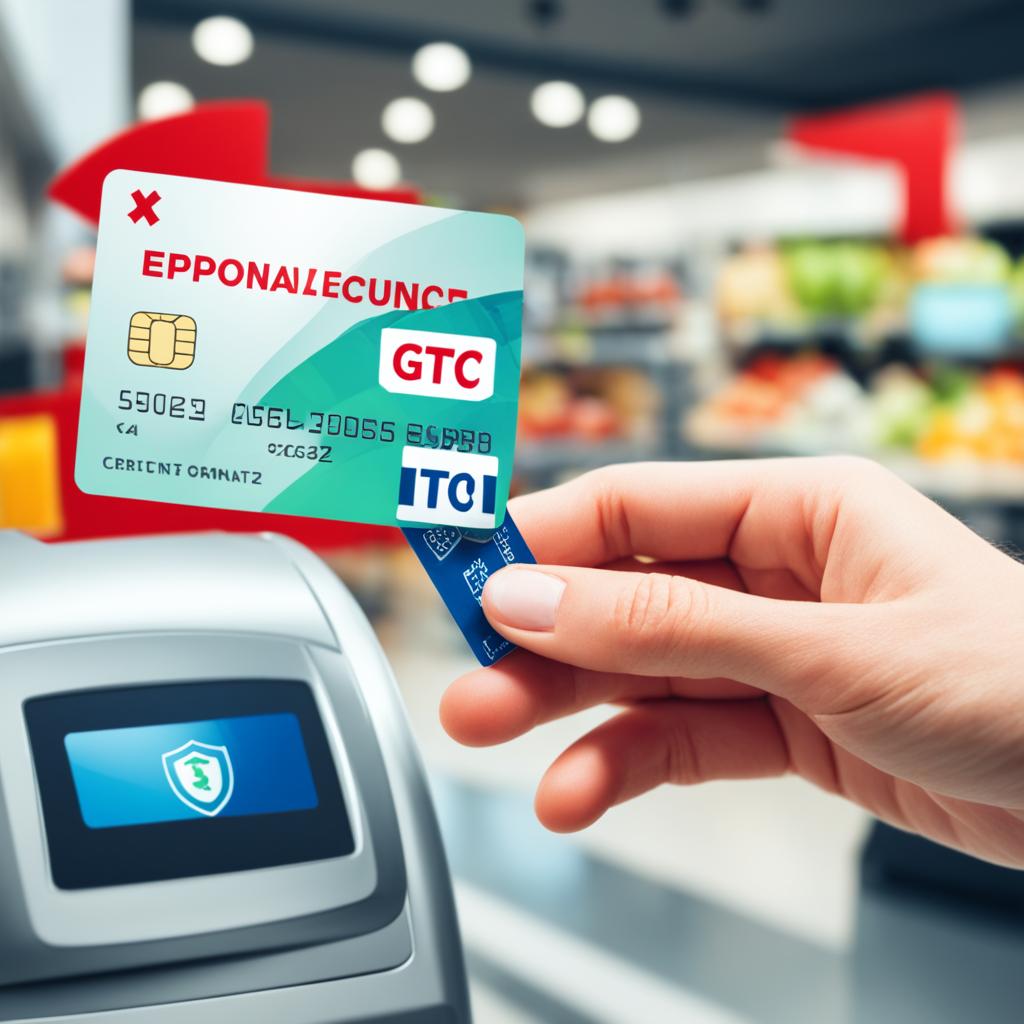When it comes to managing your government travel card, there are certain restrictions and guidelines that must be followed. But what about everyday expenses like groceries? Can you use your government travel card to cover those costs? It’s a question that may have crossed your mind, and the answer may surprise you.
Many people assume that the government travel card is strictly for official travel expenses, such as airfare, lodging, and rental vehicles. And while that is true to an extent, there are some instances where the card can be used for other purposes, including groceries.
So, can you use your government travel card for groceries? The answer is…it depends. While the primary purpose of the card is to cover official travel expenses, there may be certain circumstances where using the card for groceries is allowed. However, it is essential to refer to the Joint Travel Regulations (JTR) for specific details on reimbursable expenses and any restrictions that may apply.
The JTR provides a comprehensive outline of authorized expenses and guidelines for using the government travel card. It is crucial to consult this resource to ensure that you are using the card appropriately and within the defined parameters.
Ultimately, the decision of whether or not you can use your government travel card for groceries will be determined by the JTR and any additional guidelines set by your organization. It is always best to err on the side of caution and seek clarification from your travel coordinator or Agency Program Coordinator (APC) for any expenses that fall outside the realm of traditional official travel.
Now that we’ve answered the question of using your government travel card for groceries, let’s explore the authorized expenses and restrictions that come with the card. Stay tuned for the next section to learn more.
Authorized Expenses and Restrictions Under the GTCC

The Government Travel Charge Card (GTCC) is a valuable resource that allows you to conveniently pay for various official travel expenses without using your personal funds. However, it is essential to be aware of the authorized expenses and restrictions outlined in the Joint Travel Regulations (JTR).
The JTR provides comprehensive guidelines on reimbursable expenses and specifies the circumstances under which certain expenses may not be covered by the GTCC. By consulting the JTR, you can ensure that you are fully informed about the approved expenses and any potential restrictions.
Here are some examples of authorized expenses under the GTCC:
- Meals during official travel
- Lodging
- Rental vehicles
- Airfare
- Public transportation
However, it is important to note that the GTCC has restrictions on what expenses can be charged. Some examples of expenses that may not be covered by the GTCC include:
- Personal expenses unrelated to official travel
- Excessive or extravagant expenses
- Alcohol, unless specifically authorized
- Procurement of goods or services not directly related to official travel
Consulting the JTR will provide you with a detailed breakdown of authorized expenses and any restrictions. It is crucial to adhere to these guidelines to ensure your travel expenses are properly reimbursed and to avoid any potential issues.
| Authorized Expenses | GTCC Restrictions |
|---|---|
| Meals during official travel | Personal expenses unrelated to official travel |
| Lodging | Excessive or extravagant expenses |
| Rental vehicles | Alcohol, unless specifically authorized |
| Airfare | Procurement of goods or services not directly related to official travel |
| Public transportation |
By understanding the authorized expenses and adhering to the restrictions, you can ensure a smooth and efficient experience when using the GTCC for your official travel needs. Remember to consult the JTR for the most up-to-date and accurate information on authorized expenses and any potential restrictions.
Protecting Your GTCC and Reporting Lost or Stolen Cards

The Government Travel Charge Card (GTCC) is a valuable resource for managing your official travel expenses. To ensure its security and protect against unauthorized charges, it is essential to take proactive measures to safeguard your GTCC.
Safeguarding Your GTCC
Here are some best practices to protect your GTCC:
- Keep your GTCC in a secure location when not in use.
- Do not share your GTCC information or PIN with anyone.
- Regularly monitor your account activity and transactions for any unauthorized charges.
- Dispose of GTCC statements and receipts securely to prevent identity theft.
- Immediately report any suspicious activity or fraudulent charges to your travel coordinator and the GTCC customer service.
By following these measures, you can mitigate the risk of unauthorized use and protect your GTCC from potential fraud.
Reporting a Lost or Stolen Card
If you discover that your GTCC has been lost or stolen, it is crucial to take immediate action. Reporting the loss promptly minimizes the risk of fraudulent charges and enables necessary actions to be taken. Here’s what you should do:
- First, contact the bank’s customer service number provided on the back of your card. Inform them about the loss or theft of your GTCC.
- Next, notify your travel coordinator or supervisor about the situation. They will guide you through the necessary steps to resolve the issue.
Remember, swift reporting is crucial to protect your GTCC and ensure that appropriate measures can be taken to address the situation.
Delinquency and Payment Responsibilities

Proper payment management is crucial when it comes to your Government Travel Charge Card (GTCC). Failing to make timely payments can have significant consequences, not only for you but also for the Department’s ability to fulfill its travel mission.
When your GTCC payments become delinquent, your account may be suspended. This means that you won’t be able to use the card for official travel expenses, forcing you to rely on personal funds instead. It’s important to note that any expenses incurred during this period may not be eligible for reimbursement.
Moreover, delinquency impacts the rebates earned by the Department from the card provider. A reduction in GTCC usage due to delinquent accounts means fewer rebates, potentially resulting in decreased funding for travel-related initiatives and programs.
To avoid delinquency and the associated consequences, it is vital to understand and fulfill your payment responsibilities. Ensure that you make payments on time and in full, adhering to the terms and conditions set by the GTCC program.
By proactively managing your GTCC payments, you not only safeguard your ability to cover official travel expenses but also contribute to the Department’s continued success in fulfilling its travel mission.
Key Responsibilities for GTCC Payments:
- Adhere to the payment due dates outlined by the card provider.
- Make payments in full and avoid partial payments to prevent delinquency.
- Regularly monitor and review your GTCC account statements for any discrepancies or fraudulent charges.
- Set up automatic reminders or alerts to ensure timely payment submissions.
- Contact your card provider or Agency Program Coordinator (APC) immediately if you encounter any issues or difficulties in making payments.
By fulfilling your payment responsibilities, you not only maintain a positive financial standing but also contribute to the smooth operation of the GTCC program and the Department’s travel endeavors.
Resources and Contacts for GTCC Management
When it comes to managing your Government Travel Charge Card (GTCC), there are various resources and contacts available to assist you. Your first point of contact should be your Agency Program Coordinator (APC). They will be able to provide guidance and support for any GTCC-related questions or issues that may arise.
In addition to the APC, the Department of Defense Travel Management Office (DTMO) is another valuable resource for GTCC management. The DTMO offers comprehensive guidance, policies, and training for the GTCC program, ensuring you have access to the most up-to-date information.
To conveniently manage your GTCC, you can utilize online tools like CitiManager. CitiManager provides a user-friendly platform where you can access your card balance and payment information. It also allows you to report a lost or stolen card and set up alerts to monitor your GTCC activity.
For more detailed information on GTCC management, refer to the provided resources. These resources will ensure you have the necessary tools and contacts to effectively manage your GTCC and navigate any challenges that may arise.


